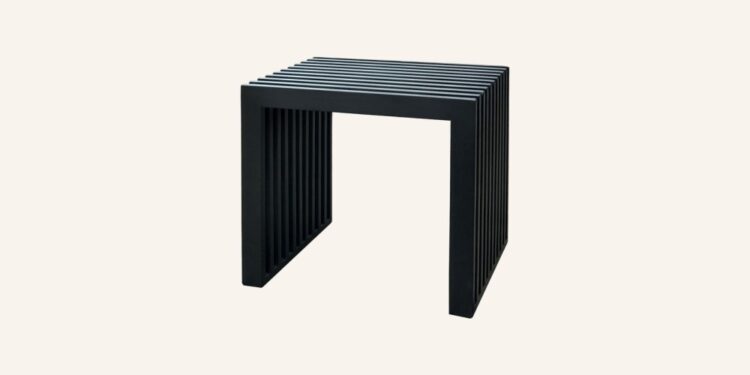Minimalism is more than just a design trend or a lifestyle choice – it is a philosophy, a conscious way of living that seeks to declutter our lives and realign them with what truly matters. In a world consumed by consumerism, digital overload, and constant busyness, minimalism stands as a countercultural force that urges us to pause, simplify, and reclaim control.
It has gained momentum not only in interior design but also in personal development, business strategies, and mental well-being. At its core, minimalism is about intentionality: choosing less, but better. It is not deprivation, nor is it about living with nothing; rather, it is about creating space – physically, mentally, and emotionally – for the things that bring real value and meaning.
The origins of minimalism
Minimalism is not a new phenomenon. Its philosophical roots can be traced back centuries, from Stoic teachings in ancient Greece and Rome to Buddhist principles in the East. Stoics such as Epictetus and Seneca emphasized simplicity, discipline, and focusing only on what one can control, while Buddhism has long advocated for detachment from material possessions as a path to inner peace.
In the modern era, minimalism emerged as an artistic and cultural movement in the 20th century. Minimalist art and architecture, with their emphasis on clean lines, open spaces, and functional design, rejected the ornate excesses of previous styles. In the 1960s and 70s, artists like Donald Judd and Agnes Martin created works stripped down to essentials, conveying the beauty of simplicity.
Today, minimalism has expanded far beyond the arts. It has entered the realms of personal development, lifestyle design, and even business, where companies adopt minimalist branding and product design to communicate elegance and clarity. Apple, for instance, is a global case study in the power of minimalist design and messaging.
Understanding the philosophy of minimalism
Minimalism can be misunderstood as a sterile or rigid lifestyle, but in reality, it is deeply personal and flexible. At its heart lies a philosophy of intentional living.
- Clarity of purpose: Minimalism helps individuals identify what is essential. By removing distractions, one gains clarity about values, goals, and priorities. This clarity creates a strong foundation for decision-making.
- Quality over quantity: Minimalism emphasizes choosing fewer possessions, relationships, or commitments – but investing more deeply in each. It advocates for durability, meaning, and substance rather than accumulation.
- Freedom from excess: Excessive material possessions, obligations, and even digital clutter can weigh us down. Minimalism offers freedom by detaching self-worth from ownership or status.
- A focus on experiences and relationships: Many minimalists shift focus from consuming goods to experiencing life. Travel, shared meals, conversations, and creative pursuits replace compulsive shopping as sources of joy.
Minimalism in personal spaces
Perhaps the most visible application of minimalism is in our physical environments. Home and workspaces designed with minimalist principles often feel lighter, calmer, and more functional.
- Decluttering the home: Removing unused or unnecessary items brings not only physical order but also psychological relief. A minimalist home typically prioritizes open spaces, neutral colors, and a few treasured objects.
- Minimalist design principles: Neutral palettes, natural light, functional furniture, and multipurpose items embody the aesthetic. A simple wooden dining table or a well-crafted chair can stand out when not competing with excessive décor.
- Work environments: In offices, minimalism improves productivity. A desk with only essentials helps workers focus, while digital minimalism – streamlining apps, notifications, and documents – enhances clarity and efficiency.
The psychological and emotional power of minimalism
Minimalism exerts a profound influence on mental health and emotional well-being.
- Reduced stress: Clutter is mentally draining. Psychologists have shown that cluttered environments increase cortisol levels, leading to stress and fatigue. Minimalism, by contrast, fosters calm and control.
- Enhanced focus: Fewer distractions mean greater concentration. A minimalist lifestyle creates conditions for deep work and creativity.
- Emotional liberation: Letting go of objects often means letting go of the past. Minimalism helps individuals release guilt, attachment, or fear tied to possessions, creating space for growth.
- Mindfulness and presence: Minimalism aligns with mindfulness practices. By simplifying, individuals cultivate awareness of the present moment and appreciate the ordinary beauty around them.
Minimalism and financial freedom
Minimalism is intrinsically linked to financial empowerment. By choosing intentional consumption, people often find themselves saving more and stressing less about money.
- Curbing consumerism: Minimalism resists the cultural push for perpetual upgrading – be it gadgets, fashion, or cars. Instead, it asks: “Do I really need this? Does it add value to my life?”
- Budgeting with purpose: Minimalists often spend more mindfully, directing money towards meaningful experiences such as travel, education, or investing, rather than impulse buys.
- Debt reduction: Many who adopt minimalism find it easier to pay off debts, as unnecessary purchases dwindle. This creates long-term security and freedom from financial anxiety.
Minimalism in the digital age
The 21st century presents a unique challenge: digital overload. Social media, emails, streaming platforms, and constant notifications bombard our attention. Minimalism offers solutions through digital minimalism.
- Screen time management: Reducing unnecessary scrolling and prioritizing meaningful online interactions helps reclaim time and mental energy.
- Curating digital spaces: Unsubscribing from newsletters, organizing files, and limiting apps creates a cleaner digital ecosystem.
- Intentional connectivity: Minimalism encourages setting boundaries – no screens during meals, or device-free mornings – to restore balance between technology and life.
Minimalism in relationships
Minimalism extends beyond possessions into the way we manage social ties.
- Quality over quantity in friendships: A minimalist approach fosters deeper, more meaningful relationships instead of spreading oneself thin across countless acquaintances.
- Emotional boundaries: Minimalism teaches the power of saying “no” to draining commitments or toxic relationships, preserving energy for authentic connections.
- Family life: Families practicing minimalism often focus less on gifts and more on shared experiences, cultivating bonds through simplicity.
Minimalism in work and productivity
In professional life, minimalism is a powerful tool for clarity and innovation.
- Simplified prioritization: By eliminating nonessential tasks, minimalism sharpens focus on high-impact work. This echoes the Pareto Principle – 80% of results often come from 20% of efforts.
- Lean business models: Many startups embrace minimalism by keeping operations lean, focusing on core competencies, and avoiding unnecessary bureaucracy.
- Minimalist leadership: Leaders who adopt minimalism often practice transparency, clear communication, and restraint in decision-making – qualities that foster trust and efficiency.
Misconceptions about minimalism
Despite its benefits, minimalism is often misunderstood.
- “Minimalism is About Having Nothing.”: In truth, minimalism is not about deprivation but about intentionality. A minimalist may still own art, books, or clothes they love – but these possessions are curated, not random.
- “Minimalism is Only for the Wealthy.”: While minimalist aesthetics are sometimes marketed as luxurious, the philosophy itself is universally accessible. In fact, minimalism often reduces costs, making it financially liberating.
- “Minimalism is a Rigid Formula.”: There is no single way to be a minimalist. For some, it means owning fewer than 100 items; for others, it simply means being mindful about what enters their homes and lives.
The global impact of minimalism
Minimalism is not merely a personal choice; it has societal and environmental implications.
- Sustainability: By consuming less, minimalists reduce waste, carbon footprints, and reliance on fast fashion or disposable goods. This contributes to ecological preservation.
- Cultural shifts: As minimalism spreads, it challenges consumer-driven economies to adapt. Companies are forced to emphasize quality, ethical production, and durability.
- Community living: Minimalism has inspired movements such as tiny homes, co-living, and shared economies, which promote resource efficiency and social connection.
Practical steps to embrace minimalism
Adopting minimalism does not require overnight transformation. It is a gradual process of intentional choices.
- Start small: Begin with one drawer, one closet, or one digital folder. Small wins create momentum.
- Ask guiding questions: “Does this add value?” “Do I use this often?” “Would I buy this again?” Such questions clarify decisions.
- Declutter regularly: Minimalism is not a one-time act but a practice. Set aside time monthly or seasonally to reassess possessions and commitments.
- Adopt mindful consumption: Pause before making new purchases. Delay impulse buys by 24 hours to assess necessity.
- Embrace experiences: Shift focus from accumulating to experiencing – invest in learning, traveling, or creating memories.
Minimalism as a lifelong journey
Minimalism is not a destination but an ongoing journey. Needs and values evolve over time, and minimalism adapts with them. For one person, it may mean simplifying their wardrobe; for another, it could mean reducing digital noise or downsizing their home. What unites all minimalists is the pursuit of intentional living.
Conclusion
Minimalism is not about empty rooms, monotone wardrobes, or rigid self-denial. It is about empowerment – gaining control over one’s environment, finances, and time by stripping away the unnecessary. It cultivates clarity, freedom, and fulfillment. In a culture that equates success with accumulation, minimalism invites us to redefine wealth and happiness.
True abundance, it teaches, is not measured by how much we own but by how intentionally we live. The power of minimalism lies not in subtraction for its own sake, but in the space it creates for meaning, connection, and growth. By embracing minimalism, we learn a profound truth: less can indeed be more.


































































































































































































